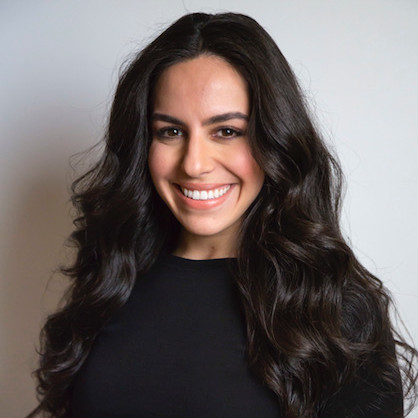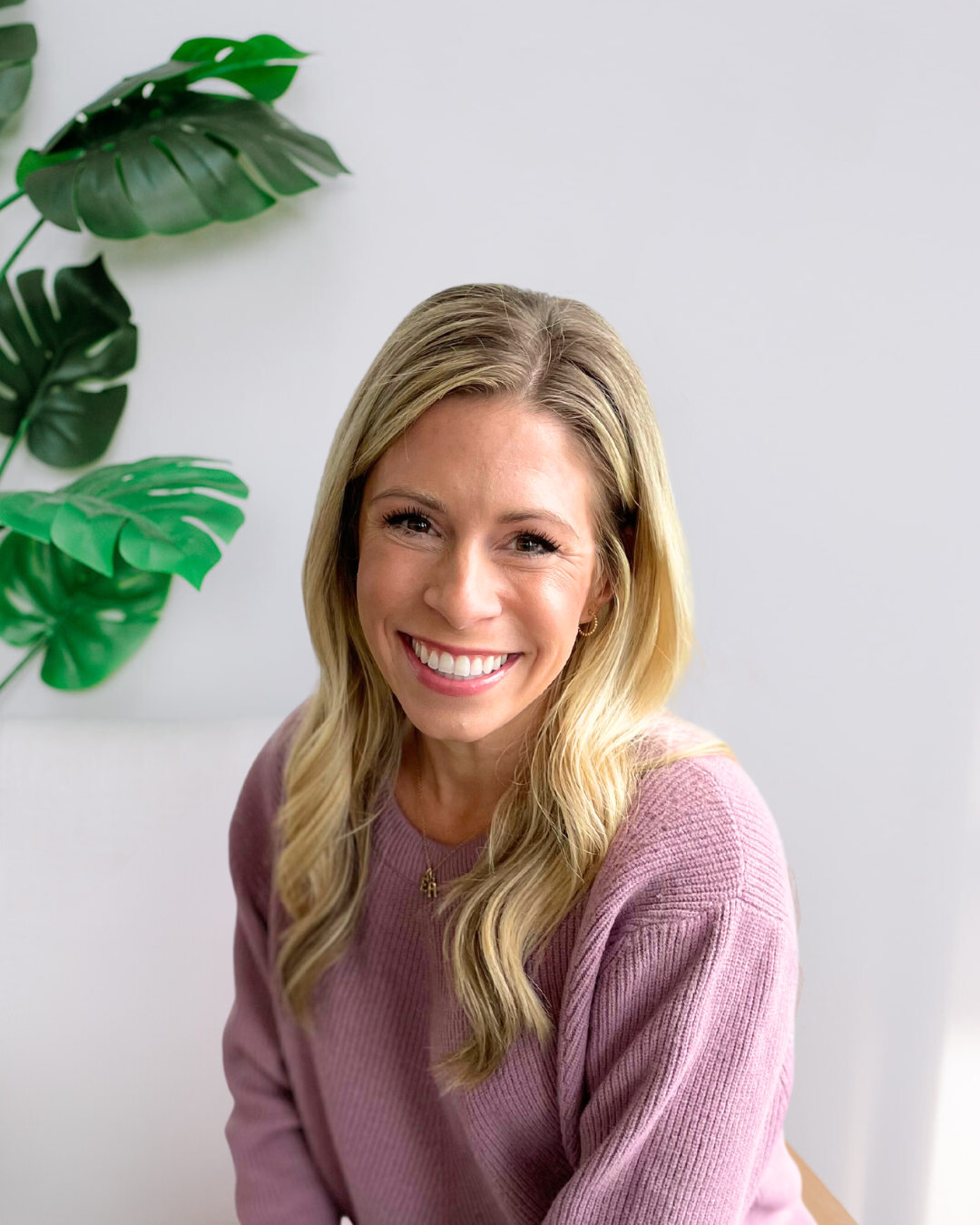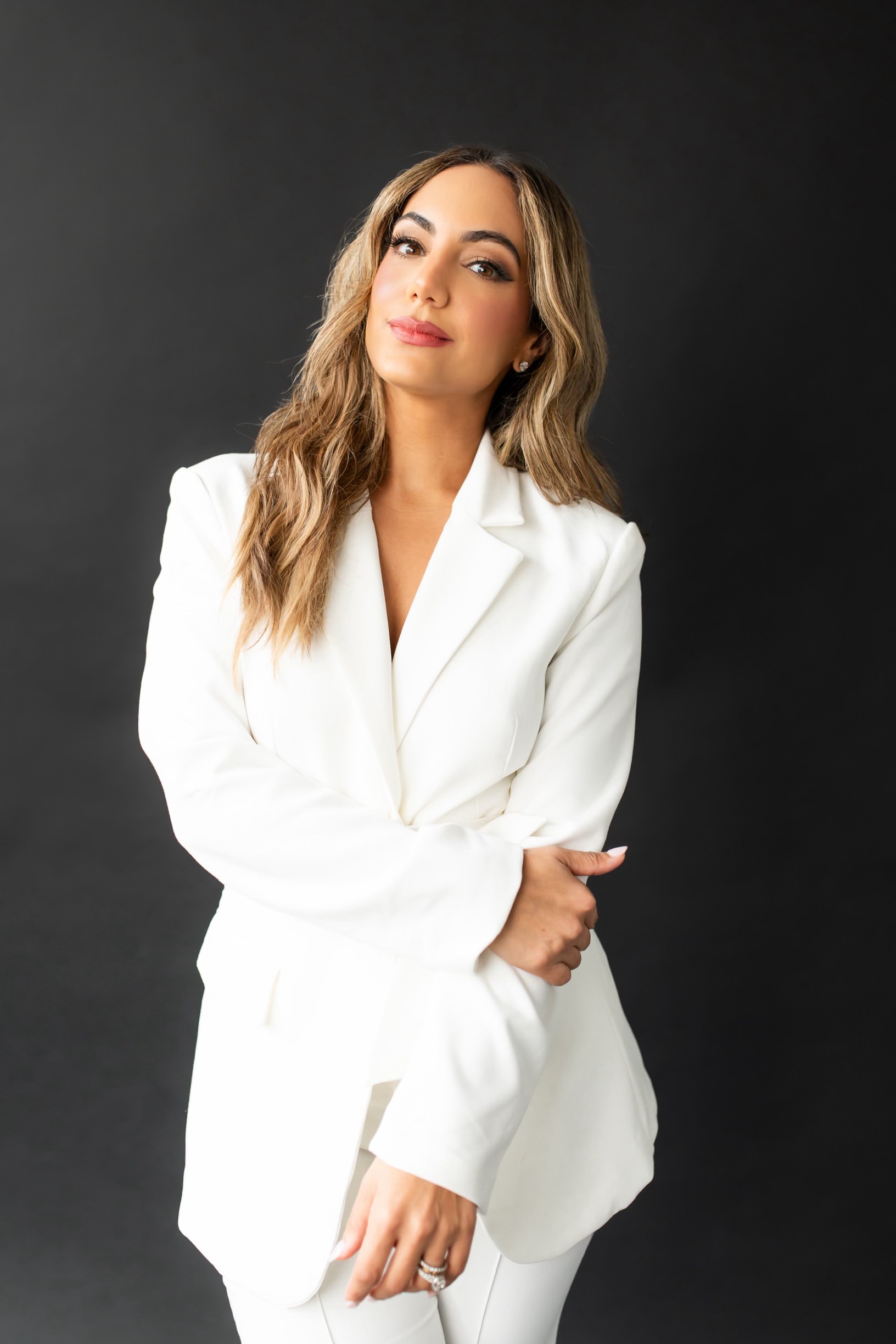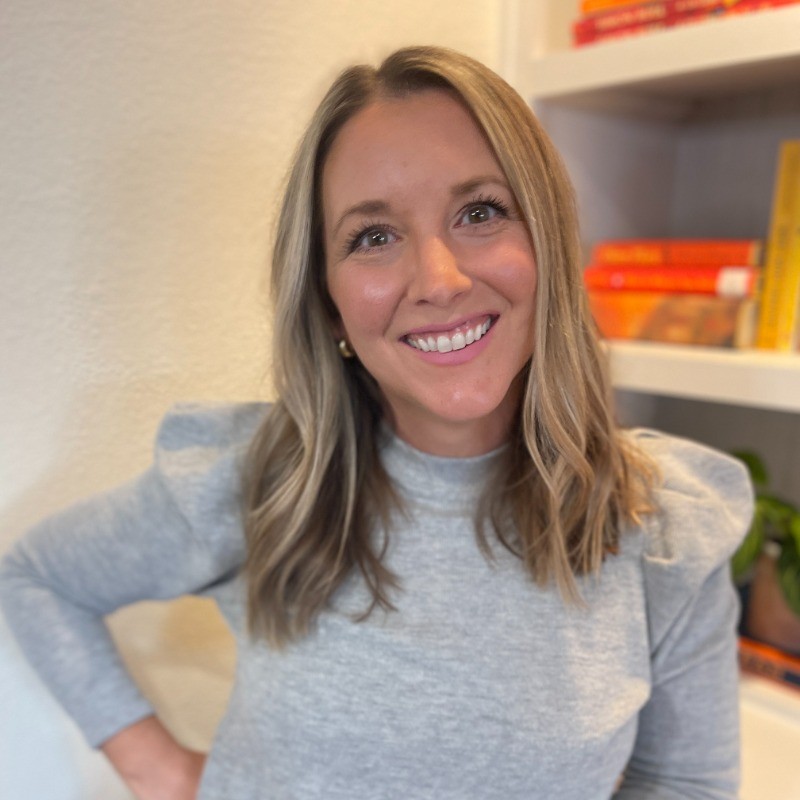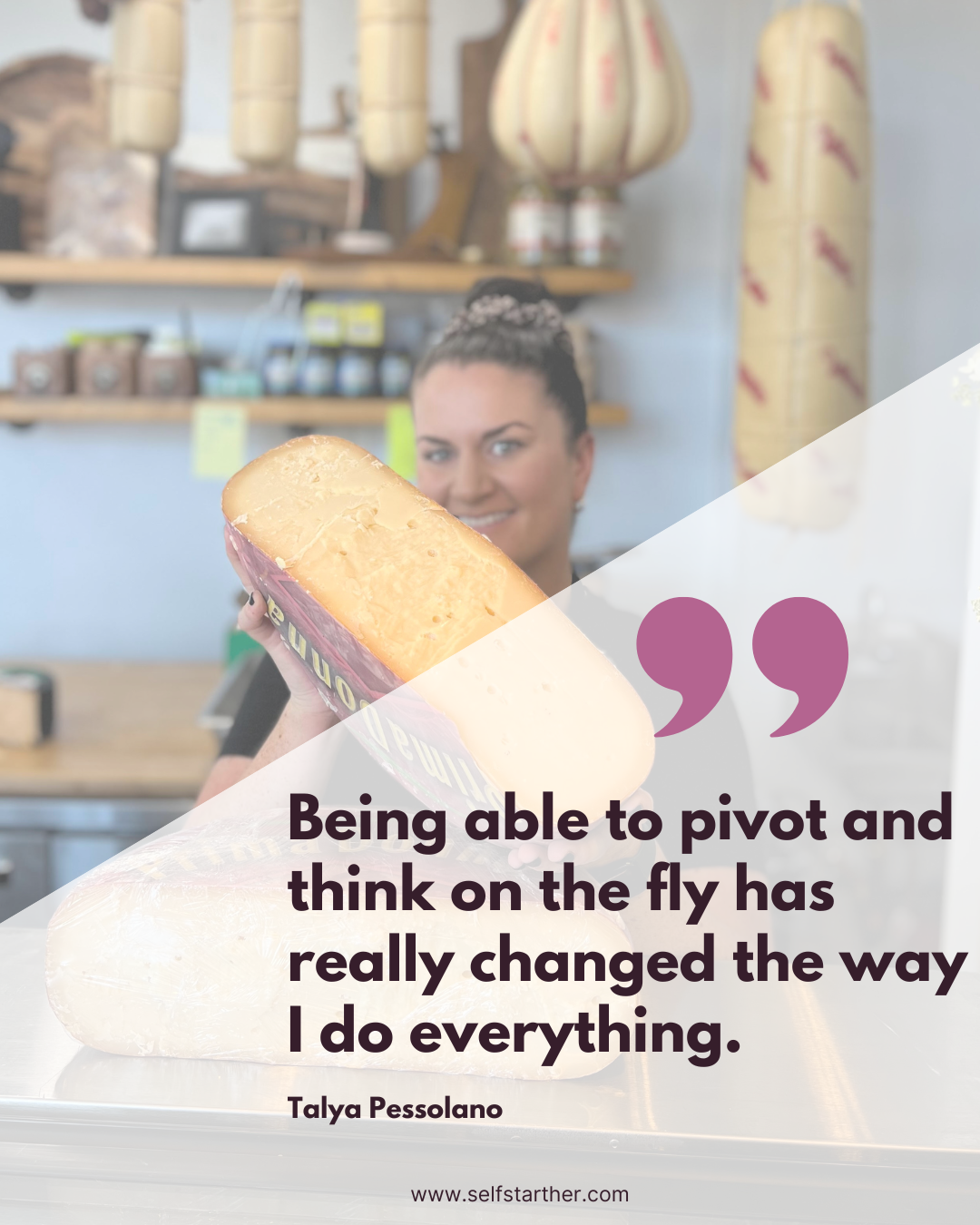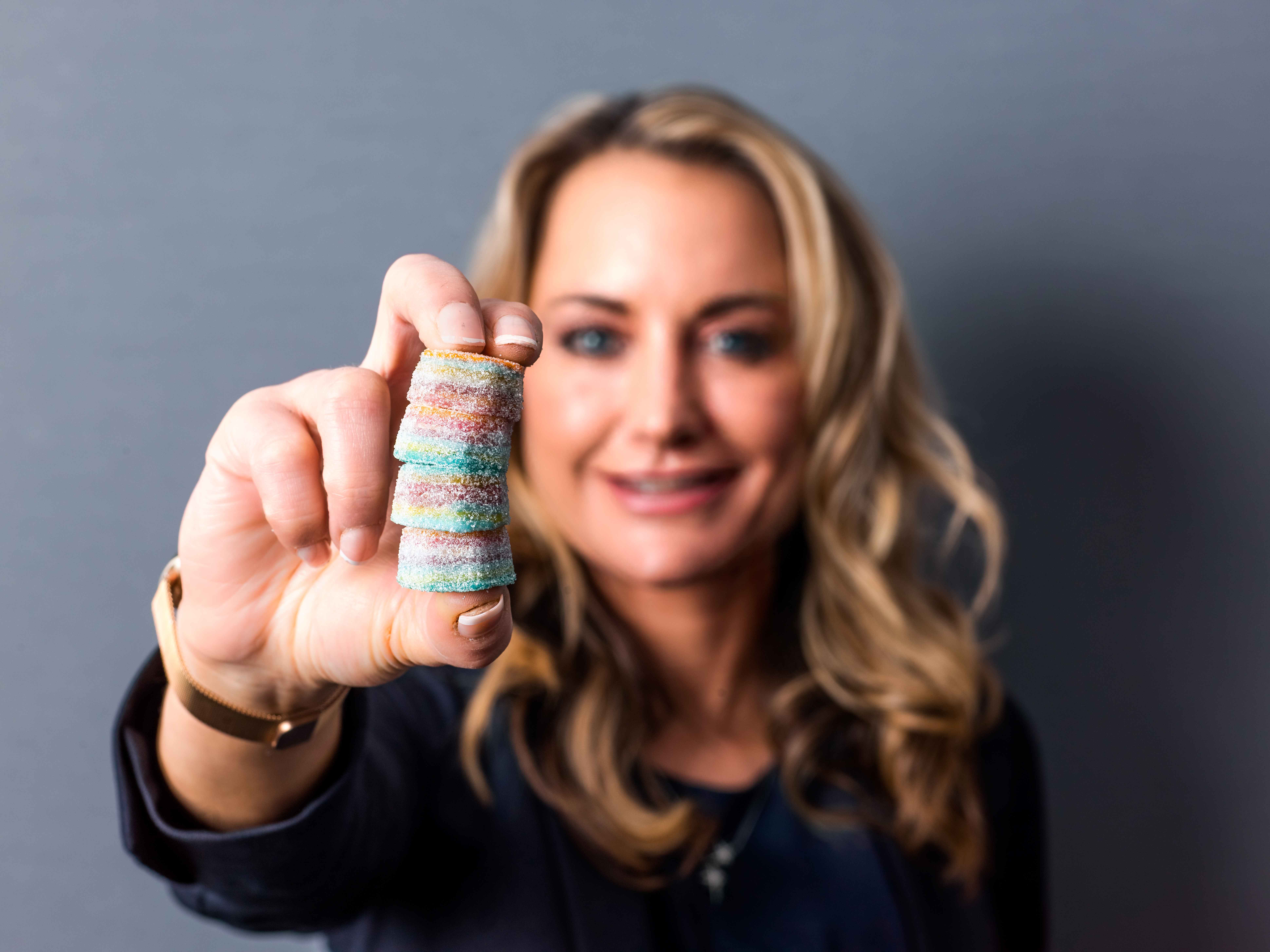Leyla Bilali had always desired creating a purpose-driven business: “I had been waiting for this opportunity to do more and do something outside the box. And it’s very hard actually, you know, as a nurse, as a medical practitioner, it’s very hard to do things outside the box because there’s a lot of legal constraints and it’s not so easy to be an entrepreneur in that space. And so when that came to me, was kind of a no -brainer.”
Leyla Bilali is the Co-Founder and Chief Clinical Officer at Dandi, bringing a rare combination of professional expertise and personal experience to the world of fertility care. As both a seasoned fertility expert and a three-time IVF patient, Leyla offers unparalleled insight into the kind of compassionate, comprehensive support fertility patients truly need.
With over a decade of nursing experience, Leyla began her career as a pediatric nurse before shifting her focus to reproductive endocrinology. At one of New York City’s leading fertility clinics, she provided exceptional care to thousands of patients, earning a reputation for her expertise, empathy, and even a touch of humor. Recognized as “The Fertility Fairy Godmother,” Leyla founded Fertility Together, a consulting service dedicated to guiding patients through the critical, often overwhelming moments of their IVF journey with personalized and compassionate care outside the clinic.
Her own fertility journey has given Leyla an intimate understanding of the emotional ups and downs that come with the process. This perspective shaped Dandi’s virtual support services, which fill a crucial gap in fertility care by offering real-time, personalized, and medically-credible guidance, coaching, and education.
In this conversation, Leyla shares her journey in the fertility space and the creation of her company. She discusses the challenges and rewards of starting a purpose-driven business and the importance of filling the gaps in the market. She also emphasizes the need for personalized care and support in the fertility journey and the impact it can have on patients’ lives.
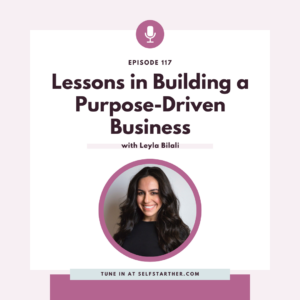
Key Takeaways:
- Dandy Fertility provides personalized care and resources for women going through the IVF process.
- The company offers virtual consultations and IVF care kits to make the process more comfortable.
- Leyla emphasizes the importance of personalized care and support in the fertility journey.
- Starting a purpose-driven business can be challenging, but the rewards of helping others make it worthwhile.
- Filling the gaps in the market and providing innovative solutions is crucial in the healthcare industry.
Learn more about Dandi:
Stay Connected with Self StartHER:
Subscribe to the Self StartHER podcast for more inspiring episodes.
Follow Self StartHER on Instagram for updates and behind-the-scenes insights.
GRAB YOUR FREE PRODUCTIVITY PLAYLIST AND HIT PLAY HERE!!!
Transcript
Well, Layla, I have to say I always love a good company name and your company name is one that really resonated with me. And so I want to really first start and kick this off with understanding your company name and then we’ll really get into your story here.
Leyla Bilali (00:15.323)
Yeah, it actually took us a really long time to come up with the name Dandy and it comes from the dandelion flower. So we did a lot of research on, you know, different things in nature that had ties to fertility. And not only does the dandelion root have ties to fertility from like a
herbal Eastern medicine perspective, but it also symbolizes a lot of the things that people go through in their fertility journeys. It symbolizes growth and change and, you know, the dandelion flower starts out one way and ends up in a completely different, you know, form. And so it kind of worked from both angles, but it did take us a really long time to get there. But we’re really, we’re really happy with the name. We’re really happy.
where we landed.
Megan Tobler (01:10.852)
I think it’s beautiful and it really resonated with me because most of our listeners are women who are going through their own journey. It’s not necessarily always related to the fertility journey, but they’re going through a journey of growth and transformation as well. So the dandelion just really painted a beautiful picture in my mind. And so today we are going to be talking all about growth and transformation and really focusing on women. So with that being said,
Let’s dive into everything all about you and the company dandy.
Leyla Bilali (01:42.865)
Yeah. I have been a nurse for over 15 years now. So I worked in pediatrics first, and then I transitioned into fertility. It’s been a little over 10 years that I’ve been working in the fertility space. And it kind of just fell into my lap. I just wanted to leave pediatrics to learn more. I was only 28. I feel like I had kind of been doing the same.
things on repeat in the pediatric space. And so I just wanted to change. I interviewed at a fertility clinic in New York, one of the top clinics there for a recovery room physician just to learn a new skill set. I’d never worked in that kind of surgical space before. And the nurse manager asked me if I was interested in being a fertility nurse and an IVF nurse. And at that time, which is so crazy that IVF is like my life now, at that time, I didn’t know what it was. I didn’t know how my period worked, even though I was
28 years old. I didn’t know anything about the space. And then I started there and within two months of being there, like I got on the floor really quickly off of training and it kind of just became my thing. So it really did just kind of fall into my lap, but now it’s become my life. I loved working there. I love the clinical space and even now having, you know, been at Dandy for the past couple of years and not being in the
clinical space, I do miss it because the patient face inside, that’s why I went into nursing in the first place. used to always tell my husband that I don’t really have a talent and that I wish that I had a thing. And he always tells me that my talent is connecting with people. I’m very good at connecting with people on a deep level, very quickly. And the fertility space is so intimate and you need that level of
you know, trust and you need to have that kind of intimate rapport with someone. And so, yeah, it just, kind of became my niche. a couple of years into working at the clinic that I was at, I started my own concierge business. So I started noticing that, you know, patients were asking so many questions of me after hours. So I would give people myself, I know you’re not supposed to do that, but that was just.
Leyla Bilali (04:04.337)
I didn’t have a family at the time. It was just my husband and I, and he was working a lot. so my work was my life. And so I’d give out my cell phone all the time, and I would go to people’s homes and I would do their injections for them. And I would notice how much time I was spending answering all of these questions and kind quelling their anxieties. And so one of my patients kept telling me, you should start your own business. Everyone should have a LELO when they go through their fertility stuff. And I was dragging my feet because that’s not my wheelhouse.
So I finally started my own concierge business and we have kind of, you know, grown from there. So while I was growing, one of my former patients, he’s the one that sent me the deck for Dandy and he said, you know, I’ve come on as an early advisor for this company. I think that you would be great for it. What do you think? And so I met Jake, my co -founder, and he was working on the physical products.
and I had always wanted to scale my services. So all of my personalized support and consulting services, the at -home injections that my nurses and I offer, and I didn’t know how to. So was like, what if we just combine it all in one holistic fertility brand? It doesn’t exist. There is no fertility brand that brings it all together. Physical products that make the process more comfortable because there are a lot of injections involved.
and then medically credible guidance. And so, of course, you can go on Facebook, you can go on Reddit, you can go on Google. There’s all of these random forums out there where you could kind of pick people’s brains, but actual, accurate, medically credible guidance that also has that best friend feel and hand -holding feel doesn’t exist. And so that’s kind of how we put our heads together and combine what we were working on to…
Start Dandy.
Megan Tobler (06:00.994)
you’re giving IVF an intimate experience as it should be. And I think it’s so beautiful that you and Jake have created this, this company together because I am of the age where I have started a family. And as I’ve started a family, there’s not like people aren’t really talking about this stuff. And it’s a really lonely sometimes process that people are going through. And I haven’t had to go through IVF myself, but
as a lot of my friends are in this space and colleagues, this is a reality that a lot of families are facing today. And there needs to be lot of education and resources in that intimate care that you’re providing to go along with this. So before we go any further though, for anyone that’s listening that isn’t familiar with IVF, I think it’s important that we do break down what exactly this is. So that way we can have a greater conversation here as well.
Leyla Bilali (06:56.911)
Yeah, absolutely. And I think one of the most important things to note is that when we use the term IVF and vitro fertilization, it’s kind of, the process for IVF is the same as the process for egg freezing minus the fertilization part. So I think it’s important to note that the process leading up to all of that is the same, because I think a lot of times people that are going into the egg freezing process think that it’s different or that they’re
They’re shocked that they also have to do all of those injections, but the process for it, for the actual egg retrieval portion is all the same. So we just blanket everything as IVF, which is the whole process A to Z, but that beginning egg retrieval process is the same for anyone who’s freezing their eggs versus fertilizing them into embryos. But the IVF process, basically we are controlling your body. We’re pushing your body to make more
eggs in any given cycle. So naturally your body wants to ovulate one, know, maybe two, sometimes three, but really it’s one or two that your body wants to ovulate naturally. every period that you get, this is the other thing I had no idea when I started working fertility, that your period starts your cycle. It doesn’t end your cycle, it starts your cycle. So
You get your period and right in that beginning phase, the follicular phase of your cycle, we call it, we want to hijack your body and give you synthetic hormones. They’re synthetic to what you naturally have in your body. We’re just giving you more of them to basically increase that number from one or two to as many as possible.
So we give injections, they’re typically daily injections. Some clinics do them both morning and evening. Some clinics do evening only, but it is daily injections. They’re typically done subcutaneously, meaning in your fatty tissue. And most women do them in their abdomen and their lower abdomen. You can do them in your upper outer thigh as well, but they are subcutaneous in the fatty tissue. And you’re doing them for about eight to 12 days. And once we’ve hopefully recruited a bunch of follicles,
Leyla Bilali (09:10.929)
we do what’s called the egg retrieval process, which is a vaginal oocyte retrieval. That’s why sometimes people call it a VOR loosely or just retrieval. And that’s a surgical procedure. Most clinics do put you completely out for it. It’s IV sedation. It’s about a 20 minute procedure. They go in, they pierce either side of the vaginal wall to get through to your ovaries and they time it perfectly. They trigger ovulation perfectly so that…
your eggs are being released and we’re capturing them. So they go in with a tiny little needle catheter. They get out as many eggs as possible. If you’re freezing your eggs, that’s the last stop. We look to see how many of the eggs we retrieved are mature enough to be frozen and then that’s it. They remain frozen until you use them or tell us otherwise. And if you’re doing…
IVF, so the in vitro fertilization part is actually when we take those eggs and then we take either partner or donor sperm and we attempt fertilization. So we inseminate the eggs with the sperm and we attempt fertilization in the petri dish in the lab to see if we can form viable embryos that will then at a later time be transferred back into the uterus to attempt pregnancy.
Megan Tobler (10:30.852)
Gosh, medicine and science is just so fascinating what we can do today. Just, it’s mind boggling. But I appreciate you breaking down the differences and really telling me that it’s also for retrieval as well as IVF because I actually hadn’t thought about just egg retrieval in general because there are a lot of people that are wanting to freeze their eggs. Like think about all the women that are getting into relationships later and because they’re really working on their careers and still want to have a family. think.
the average age for conception is getting older. So just to be able to have these conversations and have these resources for women is so, so needed. But you mentioned you’re no longer in the clinical space. So you’re not actually doing the egg retrieval themselves. You’ve created products and also resources, correct?
Leyla Bilali (11:02.427)
Yeah.
Leyla Bilali (11:21.313)
Right. So we’re supplemental to the medical care that you’re receiving. We are, you know, an extra guidance tool for you. We’re very proactive. We’re very nurturing. And it’s very personalized. Everybody’s anxieties throughout this process are different, right? So you might be terrified of needles. That might be your biggest pain point. You might, you know, have severe anxiety about, you know,
interpreting your lab results. Like, I don’t know what any of this means. Someone break it down for me. Unfortunately, most clinics just aren’t set up in a way to personalize care. They’re fabulous in that they’re high volume and therefore they provide a lot of data for us so we know what works and what doesn’t work. So in terms of success rates, those high volume clinics do really well because they have a lot to go by. But on the flip side,
they don’t have enough manpower to be able to spend that one -on -one time with each patient. So if at any given time I have 60 patients to call that day with their results and instructions, I’m lucky if I can have five minutes with each of them to break everything down for them. It’s just not feasible. So not that they don’t want to and that the clinics are doing anything wrong or that they’re not great. I love the clinic that I worked at, but I think part of the reason why I
started my concierge business was because even at the top clinics, that personalized, nurturing, handholding care just doesn’t exist.
Megan Tobler (12:57.172)
I was actually having another podcast conversation today and the woman was saying that the reason that her company was so successful is because she’s really great at identifying the gaps in the market. they’re like what you’re talking about the clinics. It’s not like they’re trying to not provide this level of service. They just can’t. They don’t. They can’t. So there’s a huge gap that you and Jake clearly are filling right now. So let’s talk about a little about how you identified this gap. I mean, obviously you’re working in the clinical space.
Leyla Bilali (13:15.11)
They can’t.
Megan Tobler (13:27.043)
and then we’ll go from there.
Leyla Bilali (13:28.963)
Yes, so I started doing at -home injections for my patients. So some of the patients at the clinic, the injections are meant for you to be able to do them at home by yourself or if you have a partner or someone in your family who works in the medical space and can help you, but they’re meant for you to be able to do them yourself. Now, again, going back to anxiety, some people are terrified of needles and there’s no way that they’re doing it themselves. Some people are okay with the needles, but they’re so terrified of mixing things.
you know, improperly and not getting the correct dosages and they’re spending all of this time and money and energy and they want to make sure that everything is going smoothly. And so we were doing at home injections and that was kind of when I noticed all of the questions that people were asking me and they were a lot of the same questions, but I was like, okay, if I’m a really thorough good nurse at this very good clinic and they have all of these questions, then there’s no way that these needs are being met at places that
don’t even have nurses like me or clinics the same way that New York City does. And I just realized that that was just a huge gap in what we are providing. So we’re providing great medical care, but we’re not supplementing it with everything else that goes into it. It’s not like going to your PCP and having your annual physical, your height, your weight, your standard blood work. They tell you everything looks great moving right along.
more intimate and it takes a lot more to get to the end goal. Some patients are cycling for two to three years. That’s how long it can take for some people to get to their end goal. And so you definitely need to have that personalized care. You need to be able to have that relationship. that was for the…
the piece of Dandy that we’re doing with the virtual care services where we’re kind of guiding people through, just like you and I are talking, I would talk someone through their medication unboxing or how to even mix and administer their injections. If there’s somewhere where we don’t provide at home services, we can do everything virtually. And then there’s of course the component of everything being so uncomfortable and piecemeal.
Leyla Bilali (15:41.071)
So I’ve actually been a fertility patient. I’ve done two egg retrievals. I’ve done four embryo transfers. I have done hysteroscopies, all of it. So I know how uncomfortable all of this feels. even just having a hands -free heating pad, which sounds so silly, but that’s part of our Dandy kit, is so important for when you’re doing the intramuscular progesterone injections, which is part of the embryo transfer process.
that makes a huge difference, especially, like you said, these are lot of women who are very career oriented. They have a lot more going on outside of their fertility journey. Life is still going on. And so to be able to have these hands -free kind of things in their Dandy kit that allows them to multitask and continue on with their normal daily life things while doing this is super important.
Megan Tobler (16:35.918)
So it sounds like there’s two components of the business which you alluded to earlier. You have the, not the consultation side, but like the personalized care, I would say, that you’re being able to hop on for a virtual session with these women to be able to walk them through how things work and specific challenges and any anxieties that they’re going through. But then you also have these IVF care kits.
I know you alluded to the heating pad, but it also comes with from what I saw, like a belt, a cooling pad, a massage ball and shot targets. So before we go into the actual kit itself, is this the business plan that Jake came to you with that you had mentioned before that he had thought of?
Leyla Bilali (17:12.401)
you
Leyla Bilali (17:21.081)
Yeah, so he had developed all of the products in the kit on his own. I came in as the clinical piece to kind of be the sounding board for is this safe? What temperatures do these things need to be at? From a nursing perspective, how long can someone ice for? How long should someone heat for? What type of massage? In which order should these things be going in? And all of those clinical pieces that, you know,
aren’t his wheelhouse. So we kind of just complimented each other perfectly. But yes, there’s the shot targets. In the clinics, we would use Sharpies to draw circles on patients’ butts to show them where to inject their progesterone injections for their embryo transfer. So we’ve replaced that.
Megan Tobler (18:06.005)
Okay, the shot targets, almost like a sticker. I’m gonna call it like a ish type thing, like to be able to know where to go.
Leyla Bilali (18:12.931)
It’s like a kid’s tattoo. Yeah, it’s like a kid’s tattoo. How you just like wet the back and it leaves a trace and it lasts for about five days. And so as it’s fading away, you can just reapply another one. We have been gifting them to a lot of clinics. So the clinics nurses can actually apply them for you as well for the first time. And then you have that outline to go by if you want to reapply them yourself.
Megan Tobler (18:24.696)
June.
Megan Tobler (18:34.894)
Genius. Wow. it sounds like, because you said Jake was a former patient of yours, and then you also went through these experiences yourself. So it sounds like you both have really birthed this because of, clearly, saw there was also another gap in the market. It wasn’t just the level of care that you were saying. You also saw that people needed this kit at home to be able to make sure that it was the most comfortable experience that it
it could be as possible.
Leyla Bilali (19:06.371)
Exactly, yeah. We know that the process isn’t easy. We know all of the pain points. We can’t remove most of them, but we can supplement and make it more comfortable.
Megan Tobler (19:18.116)
No, this is, it’s so genius. So I guess as, as you’ve been growing this business, it sounded like it started in, was it 2021?
Leyla Bilali (19:28.497)
Jake started, what are we in 2024? Jake started in 2021. I joined about a year in. So I joined a year after that, 2022.
Megan Tobler (19:38.82)
Okay, perfect. So in the last couple of years that you two have been in business together, what have been the most kind of rewarding moments that you’ve had, but then also what have been the most challenging as well as you’ve grown this business?
Leyla Bilali (19:54.435)
A challenging piece for me was that, again, this is not my wheelhouse. I am such a clinical person. I work with sperm and blood work and, you know, I’m biology through and through. I was a biology major undergrad and then I went into nursing school. So all of the things that come with startup life, just no idea. I mean, I didn’t even know what the word SEO stood for. So
during all of my initial conversations with Jake, would just be taking notes. And then I would go to my brother -in -law who works in startup world and my husband who works in finance knows some of the stuff. So I would just go to them with my notes and ask them questions because even the abbreviations, I didn’t know what they meant. And so I think the hardest piece for me was the startup world and fundraising and that whole, you know, venture capital and that.
whole thing was the biggest challenge for me was the learning curve. And in terms of what feels the most rewarding and my achievements, time and time again, whenever somebody says to me, whenever a patient says to me, my God, thank you so much, I couldn’t have done this without you or anything along those lines, it never gets old.
It never ever gets old and every single time someone emails me or texts me a picture of their baby after you know whatever they’ve been through it never ever ever gets old. That’s my favorite part of all of this. And yeah I just I don’t take that for granted at all.
Megan Tobler (21:37.028)
that would make all of the challenges so worth it. But I also have to ask, you mentioned multiple times that you’ve come from the clinical space. Like you went to school for a nurse, you were thriving, you were loving what you were doing. And then Jake approached you saying you’d be the perfect person for this. So you didn’t have, it doesn’t sound like dreams to become an entrepreneur, it kind of just came to you. So how did you decide that you were gonna take this risk and
Just run with it.
Leyla Bilali (22:10.705)
Yeah, I mean, I guess I always had a little bit of entrepreneurial spirit because when I started my concierge business, I was kind of thinking outside of the box, right? So I wasn’t doing the, you know, three 12 -hour shifts at a hospital or just my nine to five at a clinic. I was kind of already thinking outside the box.
And so I guess I had a little bit of it in me. So when my patient sent me the deck, kind of just like a light bulb went off and I was like, I’ve been waiting to do something like this. And it really was very difficult to leave the clinical space because I love, love, love my coworkers. I love my patients. I love my employers. There wasn’t really anything I would.
change in that realm. it wasn’t like I was looking for a way out of what I was doing or that I didn’t like what I was doing. It’s just that I had been waiting for this opportunity to do more and do something outside the box. And it’s very hard actually, you know, as a nurse, as a medical practitioner, it’s very hard to do things outside the box because a lot of it, there’s like a lot of legal constraints and it’s not so easy to be an entrepreneur in that space. And so when that
came to me, was kind of a no -brainer.
Megan Tobler (23:26.328)
Well, and you’re completely right about the concierge type. You definitely had that entrepreneurial spirit already in you. But I do want to say something because you had mentioned that there’s nothing better than when you get that person that says thank you or when they share the picture of their baby after trying to conceive for so many years. And I’m sure it was really hard to leave the clinical space, but also with what you’re doing now, you’re
It sounds like you’re able to impact the lives of so many more people at one time than you were able to do it in person at the clinic. Is that also a safe assumption here?
Leyla Bilali (24:08.003)
Yeah, and that’s the end goal, right? To take everything that I was doing on this small scale in the tri -state area and be able to provide it to so many other people. A lot of people that I would meet would say, you know, I wish that I had something like this when I went through IVF. I wish that I knew that you existed. And so that was the other piece of it was that people don’t even know that it exists. And to be able to bring that to those people is huge.
Megan Tobler (24:36.58)
Well, and think that’s why conversations like these are so important is just to be, to have the awareness around this. And you’ve also been seen in things like Forbes and E news and USA Today, and the list goes on and on. So you guys are getting out there, you’re doing incredible things and you’re really impacting so many lives. And your, your husband said it, you mentioned it earlier that you, you said, I don’t really have a talent, but you do. And he’s totally right. It’s connecting with people. It’s making them feel comfortable.
and you’re really making such a big difference that I hope that you just can close your eyes at night and just like feel so much peace knowing that you’re putting so much good into this world.
Leyla Bilali (25:16.081)
Thank you, thank you. It does feel, it feels good. It feels very satisfying. And even though, you know, I’ve been through my own fertility struggles these past two years, if anything, I’ve learned so much in terms of like how to be a better practitioner and how to better be there for my patients going through the same things. My patients were my best support system going through my pregnancy losses because they knew how it felt. They knew exactly what to say, what not to say.
And if anything, it was like a learning experience for me. I just, every time I start to get sad about everything that I’ve been through, I kind of circle back to, okay, but it also taught me X, Y, and Z. And it also allows me to help other people also in this crappy situation.
Megan Tobler (26:06.126)
Yeah, well, I don’t think there’s anything ever that you can say to make anything right. But sometimes the unfortunate situations are so you can help other people too in some weird way, I guess. I don’t even know how to say that to make it sound beautiful. But I’m appreciative that you are, like I said, putting this out there and just really helping so many families and women in their journeys here. So if someone’s listening to this today,
and it’s really resonating and they want to learn more about what you’re doing. Where could they go and find you?
Leyla Bilali (26:39.429)
Yeah, so you can just go to dandifertility .com. That’s D -A -N -D -I, fertility .com. Our handle on Instagram is also dandifertility, same thing on TikTok. And yeah, all of our contact information can be found on the dandifertility website as well. So if you have any questions about the products before you purchase or any of the virtual care services, all of our contact information is on the website as well.
Megan Tobler (27:06.328)
wonderful. And I’ll make sure that everything’s in the show notes. Now just to leave listeners with one piece of advice, if there’s a woman out there that’s listening and really wants to start a business of her own, what would you tell her?
Leyla Bilali (27:18.769)
What would I tell her? Ask a lot of questions and surround yourself with a team of people who have all different wheelhouses so that you can ask those questions. So I think it’s really important to find those pieces that complement what you have and kind of going outside of your echo chamber so that you have those spaces to ask questions in. I asked so many questions and I never.
felt stupid or I never let myself feel stupid for asking questions and just making sure that I had all of the resources. like reaching out to my brother -in -law or whoever else I knew worked in the space, just shooting an email and picking their brain. So I would say ask a lot of questions. Yeah.
Megan Tobler (28:03.852)
Yeah. And, and to kind of piggyback on that, like, don’t be afraid of what you don’t know because the answer is there’s somewhere. And like you said, surround yourself with people that do know. the resources are everywhere. Well, Leila, thank you so much for such a wonderful conversation. It truly was a dandy.
Leyla Bilali (28:08.43)
Mm -hmm.
Leyla Bilali (28:12.709)
Mm -hmm.
Leyla Bilali (28:23.16)
I love that. Thank you. I love it.
